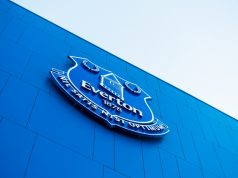Manchester United once “offered twice as much” as everyone else in the race for Jude Bellingham, but still ended up missing out on the midfielder.
That’s according to former Birmingham City chief Xuandong Ren, who says United even arranged meetings with Sir Alex Ferguson, Eric Cantona and Ole Gunnar Solskjaer in an attempt to beat others to the player.
Bellingham is currently the rising star of English football, having shone at the World Cup in Qatar with a series of impressive performances.
He is now wanted by all of the big clubs in Europe, who are ready to make a big money move for him in the summer, with Borussia Dortmund preparing for him to depart.
Not long ago, though, he was simply a highly rated youngster at Birmingham City, where he emerged as a teenager and was quickly identified as a potential superstar of the future.
All of England’s big clubs were immediately in the race for his signature, with Manchester United one of those who were pushing for his signature.
They eventually lost out to Borussia Dortmund, where Bellingham has grown to be one of the best midfielders in Europe and highly sought-after once again.
According to former Birmingham City CEO Xuandong Ren, though, Manchester United tried very, very hard to ensure it was they who won the initial race.
“Ed Woodward (then United’s managing director) was the one who was most insistent,” he told Mundo Deportivo.
“We sat down and talked about how we could convince Bellingham. But Jude didn’t make any decisions based on money.
“Manchester United offered twice as much as the rest of the clubs, they even brought him together with Ferguson, Cantona and Solskjaer to convince him. But Jude did not make any decision based on money”
“They were offering much more salary compared to the rest. Maybe double. He was going to be guaranteed millions in the bank and he didn’t take it. That’s not normal for a player at all,”
“I could only act as Birmingham’s CEO. I could say to him Jude, Manchester United are offering you three times what we are offering, you have to go.
“And it was a difficult position, because I wanted to respect his decision. At the time he could have gone for free, and we wouldn’t see any money. And our promise was that we would let them make the decision because of the loyalty they showed us.”


























